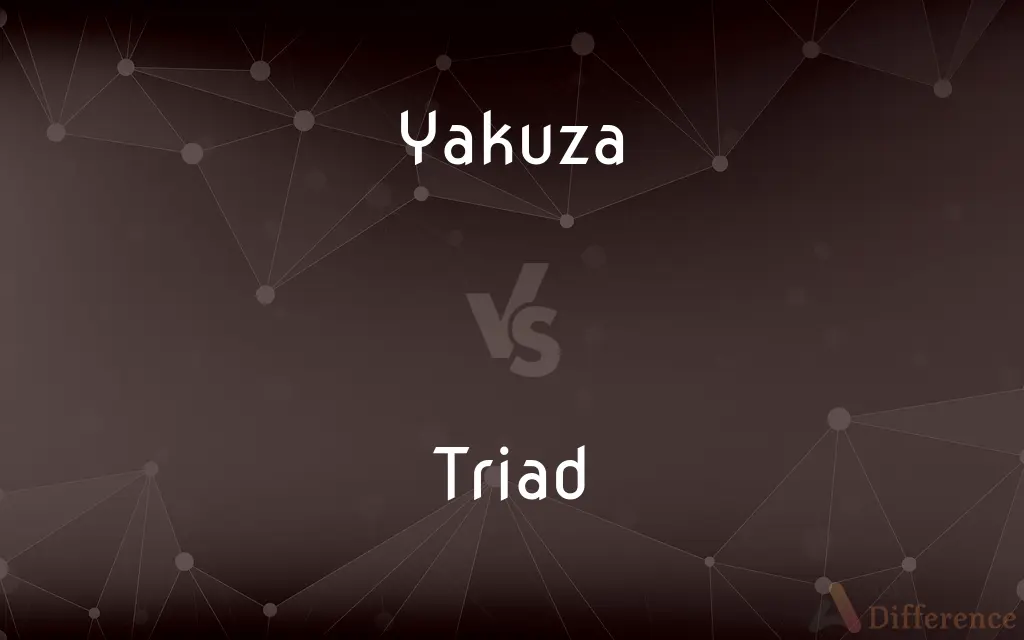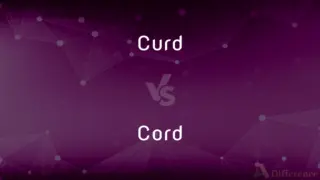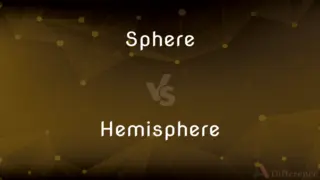Yakuza vs. Triad — What's the Difference?
Edited by Tayyaba Rehman — By Maham Liaqat — Updated on April 24, 2024
Yakuza are Japanese organized crime syndicates known for strict codes of conduct, while Triads, based in China, are loose networks of various criminal groups.

Difference Between Yakuza and Triad
Table of Contents
ADVERTISEMENT
Key Differences
The Yakuza, originating in Japan, are highly structured criminal organizations with a long history dating back to the 17th century. They are known for their strict hierarchical structures and elaborate rituals. On the other hand, Triads are Chinese criminal organizations with a similarly long history but are characterized by a more decentralized and loose network of groups that can operate quite independently of each other.
Yakuza members are often recognized by their full-body tattoos and missing digits, the latter a result of punitive measures within the group. In contrast, Triad members are less likely to exhibit such physical identifiers; their identification often revolves around secret signs and codes.
The Yakuza operates with a certain level of public acknowledgment in Japan, often participating in community activities and even engaging in disaster relief efforts. Conversely, Triads are more secretive, maintaining a lower profile in their communities in China and abroad.
Yakuza groups are governed by a strict code of conduct known as the 'jinsei', which dictates their way of life and operations. Whereas, Triad societies follow the '36 oaths', a set of rules that guide members' behavior but are less formalized in comparison to the Yakuza’s code.
In terms of activities, both groups engage in various forms of criminal enterprises such as gambling, drugs, and extortion. However, the Yakuza is also heavily involved in legitimate businesses and real estate, whereas Triads are more deeply entrenched in smuggling and counterfeiting operations.
ADVERTISEMENT
Comparison Chart
Origin
Japan
China
Structure
Highly structured and hierarchical
Decentralized and loosely connected networks
Identification
Full-body tattoos, missing digits
Secret signs and codes
Public Image
Publicly active, sometimes involved in relief
Secretive and maintains a low profile
Code of Conduct
Strict 'jinsei'
Less formal '36 oaths'
Compare with Definitions
Yakuza
A group characterized by hierarchical structure and formal rituals.
He joined the Yakuza, attracted by its order and traditions.
Triad
Identified by secret signs rather than physical marks.
The Triad communicated through coded signals.
Yakuza
Known for involvement in both criminal and legitimate businesses.
The Yakuza invested heavily in local real estate.
Triad
A member of a Chinese criminal organization.
The Triad was known for his role in the smuggling ring.
Yakuza
A member of a Japanese organized crime syndicate.
The Yakuza member displayed his tattoos at the festival.
Triad
Primarily engaged in illegal activities like smuggling and counterfeiting.
The Triad's counterfeiting business was very profitable.
Yakuza
Recognized by their strict code of conduct.
Following the Yakuza's code, he took responsibility for his mistakes.
Triad
Maintains secrecy and avoids public attention.
Unlike their counterparts, the Triad kept their activities under wraps.
Yakuza
Operates openly within certain Japanese societal norms.
The Yakuza participated in the town's disaster recovery efforts.
Triad
A network comprising various loosely affiliated groups.
He navigated the complex network of the Triad.
Yakuza
Yakuza (Japanese: ヤクザ, IPA: [jaꜜkɯza]), also known as gokudō (極道, "the extreme path", IPA: [gokɯꜜdoː]), are members of transnational organized crime syndicates originating in Japan. The Japanese police and media by request of the police, calls them bōryokudan (暴力団, "violent groups", IPA: [boːɾʲokɯꜜdaɴ]), while the yakuza call themselves ninkyō dantai (任侠団体/仁侠団体, "chivalrous organizations", IPA: [ɲiŋkʲoː dantai]).
Triad
A group of three.
Yakuza
A loose alliance of Japanese criminal organizations and illegal enterprises.
Triad
(Music) A chord of three tones, especially one built on a given root tone plus a major or minor third and a perfect fifth.
Yakuza
A Japanese gangster.
Triad
A section of a Pindaric ode consisting of the strophe, antistrophe, and epode.
Yakuza
A Japanese organized crime gang. plural: yakuza
Triad
A grouping of three.
Yakuza
A member of a Japanese organized crime gang. plural: yakuzas
Triad
A word of three syllables.
Yakuza
A Japanese gangster
Triad
A branch of a Chinese underground criminal society, mostly based in Hong Kong.
Yakuza
Organized crime in Japan; an alliance of criminal organizations and illegal enterprises
Triad
(electronics) on a CRT display, a group of three neighbouring phosphor dots, coloured green, red, and blue.
Triad
(music) A chord consisting of a root tone, the tone two degrees higher, and the tone four degrees higher in a given scale.
Triad
A union of three; three objects treated as one; a ternary; a trinity; as, a triad of deities.
Triad
A chord of three notes.
Triad
An element or radical whose valence is three.
Triad
The cardinal number that is the sum of one and one and one
Triad
A set of three similar things considered as a unit
Triad
Three people considered as a unit
Triad
A 3-note major or minor chord; a note and its third and fifth tones
Common Curiosities
Do Yakuza and Triad members have distinct physical identifiers?
Yakuza members often have full-body tattoos and sometimes missing digits, whereas Triad members use secret signs without specific physical markers.
How do Yakuza and Triad differ in their community engagement?
Yakuza sometimes engage openly in community activities, while Triads maintain a more secretive presence.
What is the main difference in the structure between Yakuza and Triad?
Yakuza are highly structured with a clear hierarchy, while Triads are decentralized networks.
How do Yakuza and Triad approach international operations?
Yakuza have extended their operations internationally with a focus on business and investment, whereas Triads have spread globally mainly through traditional criminal activities like drug trafficking.
What codes of conduct do Yakuza and Triad follow?
Yakuza follow a strict code known as 'jinsei', while Triads adhere to the '36 oaths'.
Can Yakuza or Triad members leave their organizations easily?
Leaving the Yakuza often involves significant personal and social consequences due to the strict codes, while leaving a Triad might be less ceremonious but still dangerous.
What is the public perception of Yakuza and Triad in their respective countries?
In Japan, Yakuza are both feared and integrated into certain aspects of culture, while in China and abroad, Triads are generally viewed with suspicion and associated primarily with crime.
In what types of criminal activities are Yakuza and Triad involved?
Both engage in activities like gambling and extortion, but Yakuza also invest in legitimate businesses, whereas Triads focus more on smuggling and counterfeiting.
What role do tattoos play in the identity of Yakuza members compared to Triad members?
Tattoos are significant in Yakuza culture as symbols of loyalty and commitment, while Triad members rarely use tattoos, relying more on secret signs for identity.
How do the origins of Yakuza and Triad influence their activities today?
The Yakuza's origins in samurai culture influence their organized, honor-bound approach, whereas Triad's roots in secret societies affect their decentralized, secretive operations.
Share Your Discovery

Previous Comparison
Curd vs. Cord
Next Comparison
Sphere vs. HemisphereAuthor Spotlight
Written by
Maham LiaqatEdited by
Tayyaba RehmanTayyaba Rehman is a distinguished writer, currently serving as a primary contributor to askdifference.com. As a researcher in semantics and etymology, Tayyaba's passion for the complexity of languages and their distinctions has found a perfect home on the platform. Tayyaba delves into the intricacies of language, distinguishing between commonly confused words and phrases, thereby providing clarity for readers worldwide.
















































